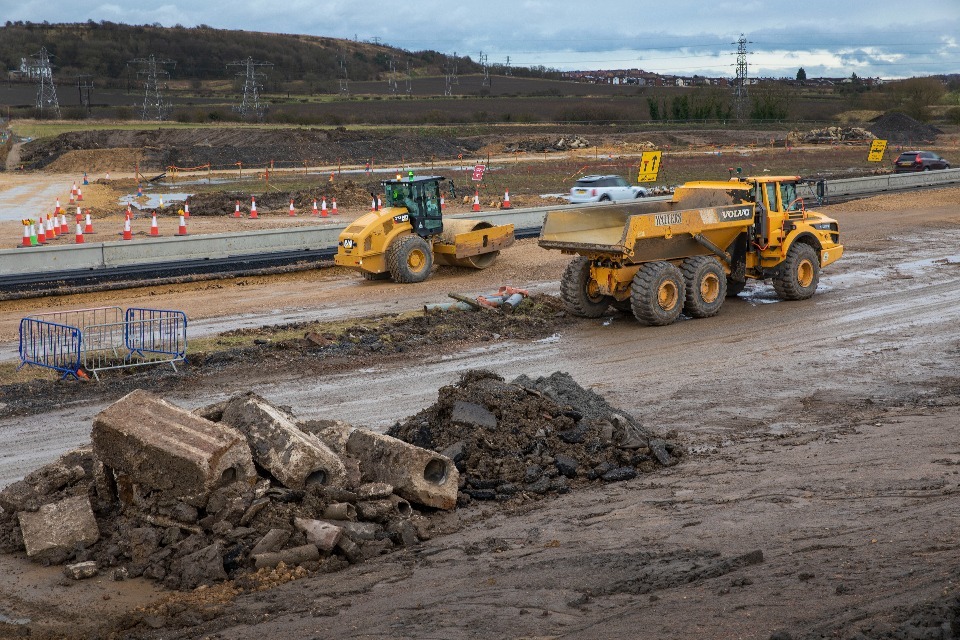Telecoms May Benefit from Gov’s New British Infrastructure Taskforce

- by Admin
- October 19, 2024

The UK Government has launched a new British Infrastructure Taskforce (BIT), which is intended to attract more private investment by encouraging businesses to help design future infrastructure policy. In theory, this could be of some benefit to broadband and mobile (digital infrastructure), although the announcement doesn’t give specifics.
According to the blurb, the new Taskforce will explore different options to support the Government’s infrastructure goals to drive growth for the whole of the nation. Some of the UK’s biggest financial companies including LLoyds, HSBC, and M&G were at yesterday’s inaugural meeting of the new group.
Naturally, there are the usual sound bites about how “this marks a significant shift in approach” and will “turbocharge infrastructure investment across the width and breadth of the UK“. But the idea of bringing businesses, banks and investors together to help shape future Government policy is by no means a new approach for politicians to explore.
The move should at least complement the Government’s efforts to “unblock” key infrastructure projects through planning reform (here and here), which may in turn help to support their plan for making a “renewed push to fulfil the ambition of full gigabit [broadband] and national 5G [mobile] coverage by 2030” (here).
Rachel Reeves MP, Chancellor of the Exchequer, said:
“Increasing investment in infrastructure is a vital part of delivering on our number one mission to grow the economy and create jobs. Just days after our International Investment Summit, we are delivering on our promise to work with business to drive growth across the country, and the expertise of this Taskforce will be invaluable in the weeks and months ahead.”
The move comes shortly after the Government announced the formation of the National Infrastructure and Service Transformation Authority (NISTA) to support their 10-year investment strategy, which aims to bring oversight of related infrastructure strategy and delivery under one roof. All of this sounds good, but judging the actual effectiveness and output of such groups can be very difficult for the public.
The following attendees of the first Taskforce meeting discussed investment opportunities, financial mechanisms, and strategies to maximise economic value. The taskforce aims to “meet regularly” in order to help it deliver “long-lasting solutions for job creation, growth, and environmental goals“:
- Tracy Blackwell, CEO, Pension Insurance Corporation;
- Anne Richards, Vice Chair, Fidelity International;
- Charlie Nunn, CEO, Lloyds Banking;
- Vivian Nicoli, Managing Director, CDPQ;
- Andy Briggs, CEO, Phoenix Group;
- Ian Stuart, CEO, HSBC UK;
- Andrea Rossi, CEO, M&G;
- Stephen Cohen, Chief Product Officer, BlackRock (represented by Helen Lees-Jones Global Head of Sustainable & Transition Solutions);
- Deepa Bharadwaj, Head of Infrastructure Europe, IFM Investors;
- Mike Regnier CEO, Santander UK;
- Sir Douglas Flint, Chairman, ABRDN;
- Nick Smallwood, CEO, Infrastructure and Projects Authority;
- James Heath, CEO, National Infrastructure Commission;
- John Flint, CEO, National Wealth Fund.
The Latest News
-
December 22, 2024Donald Trump picks Apprentice producer to be the US special envoy to UK
-
December 22, 2024Daily horoscope: December 22, 2024 astrological predictions for your star sign
-
December 21, 2024UK flights and ferries cancelled owing to high winds as Christmas getaway begins
-
December 21, 2024Prince Andrew plans to move to UAE amid espionage allegations: Report
-
December 21, 2024Inside Britain’s saddest shopping centre: Town centre mall empty just DAYS before Christmas as depressed locals say ‘it’s a disgrace’





